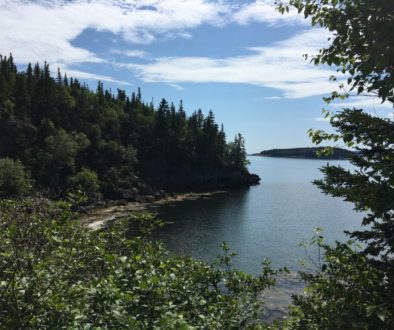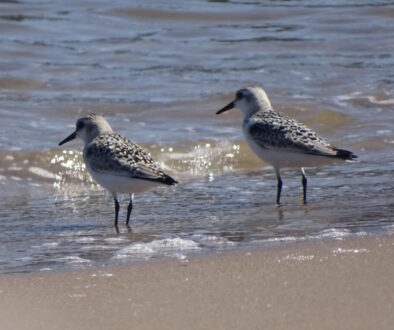Press release: Lack of Marine Protection in Bay of Fundy Troubling
Fredericton — One year after the Canadian Parks and Wilderness Society (CPAWS) called on the federal government to create 12 new marine protected areas by December 2012, the good news is that it is making progress in designating many of them as legal entities. However, CPAWS is concerned that the conservation measures the government is proposing once these areas are designated for protection may be too weak to be effective.
Today, CPAWS is releasing a 20-page report, “Is Canada on track to create 12 new marine protected areas by December 2012?” assessing progress over the past 12 months and noting areas of concern.
“We’re giving the federal government low marks on its progress in negotiations with other levels of government, industry and local communities to designate sites in the Bay of Fundy that we’ve highlighted as potential new marine protected areas, “ says Roberta Clowater, Executive Director of CPAWS New Brunswick Chapter.
Progress on 9 of 12 sites in past year
Out of the 12 marine areas CPAWS has highlighted for action by December 2012, CPAWS has observed significant movement by the federal and other levels of government towards designating three as protected areas, some progress in creating another six, and limited or no progress on the remaining three.
Progress towards designating marine protected areas has been most significant for three sites off the coast of British Columbia – in the Southern Strait of Georgia, in Hecate Strait and surrounding the Scott Islands. In each of these locations, the federal government has made significant advances in consultations and negotiations to establish formal marine protected areas within the past year, and is moving on to the next stages required to finalize them.
In six more locations, off Nova Scotia, Newfoundland, Nunavut and Quebec, some progress towards designating new marine protected areas has been made, although more significant steps are required to move them towards completion rapidly.
No progress on protecting 3 important marine ecosystems
The areas where no notable progress at all has been made towards protection are in the Bay of Fundy, the South Coast Fjords off Newfoundland, and the “Big Eddy” off the west coast of Vancouver Island.
“We are very concerned with the lack of protection in the Bay of Fundy, which stands in stark contrast to the incredible ecological richness of the Bay, and its international importance for humpback, fin and endangered North Atlantic right whales, migratory shorebirds and seabirds. We would like to see Parks Canada come forward with a proposed National Marine Conservation Area that includes strong conservation measures to conserve these values into the future,” says Ms. Clowater.
CPAWS has assessed progress towards protecting these sites on two sets of criteria: one for steps taken in the process to formally establish them as protected areas, the other for creating meaningful conservation measures to protect the long-term health of these marine ecosystems. The latter measures, based on leading science, include establishment of “no take zones” for fishing and rules against other forms of industrial development such as oil and gas drilling.
In all of the 12 areas CPAWS has identified, rare and important forms of sea life deserve protection, ranging from leatherback turtles, to dolphins, right whales and other types of whales, birds including puffins and Cassins auklets, and fish including cod and Atlantic wolffish.
Canada still has huge catch-up job
“We will be watching progress carefully over the next six months to see how much closer Canada gets to meaningful protection for these 12 marine areas by the end of 2012,” says Sabine Jessen, CPAWS national oceans program manager.
“This will be an important sign of how well we’ve laid the groundwork for more marine conservation in the years ahead. Canada still has a huge catch-up job to reach our international commitment of establishing networks of marine protected areas in all of our oceans,” adds Jessen.
-30-
For media interviews, contact:
Roberta Clowater, 506-452-9902; rclowater@cpaws.org
To view CPAWS’ full progress report, executive summary and more about each of the 12 marine areas, visit www.cpaws.org/daretobedeep


